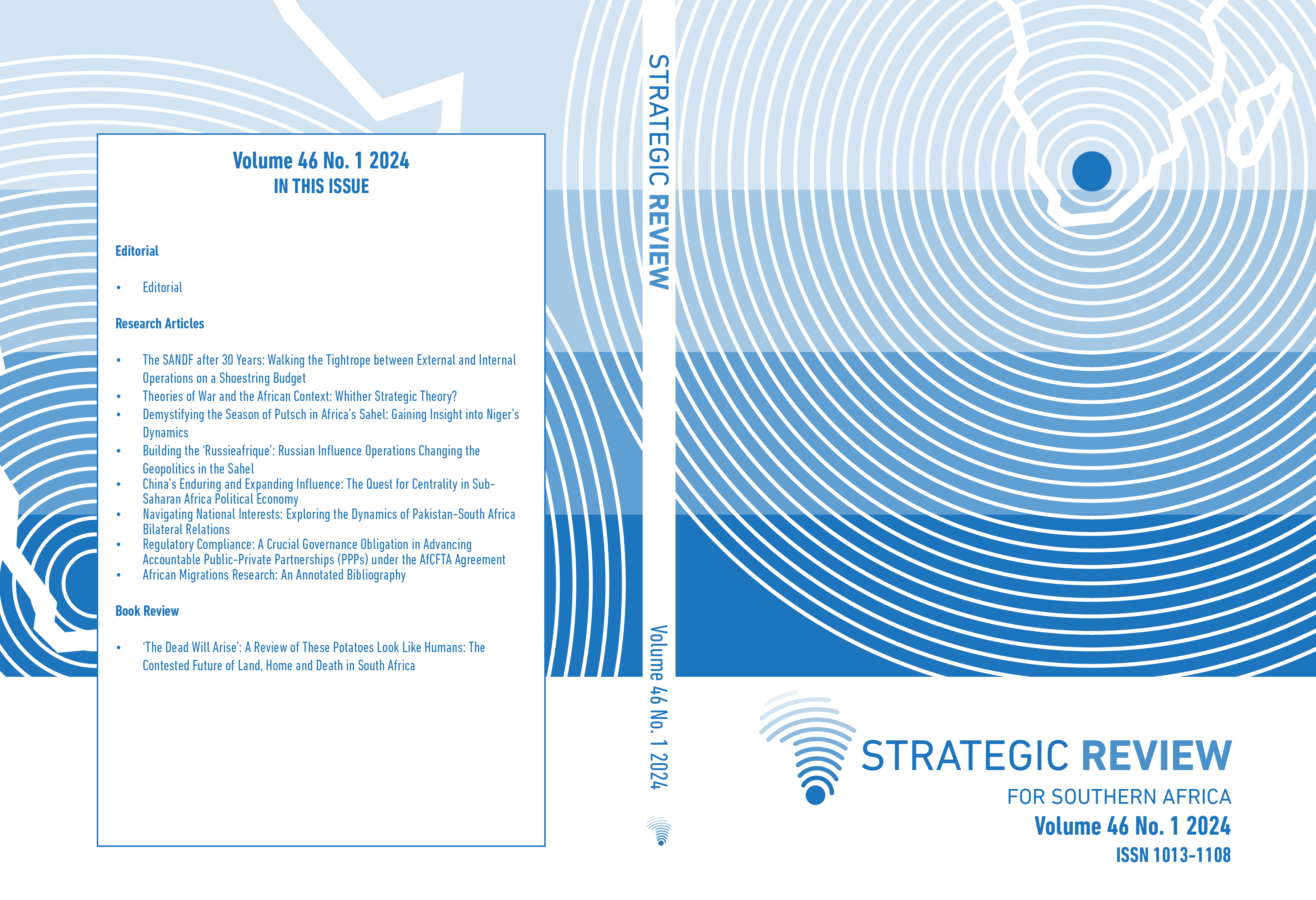Demystifying the Season of Putsch in Africa's Sahel: Gaining Insight into Niger's Dynamics
DOI:
https://doi.org/10.35293/srsa.v46i1.5005Keywords:
sahel, Coups, Gabon, Mali, Burkina faso, ECOWASAbstract
In the past three years, the African continent has experienced a notable upswing in military coups, particularly in Nations like Niger, Burkina Faso, Sudan, Guinea, Chad, and Mali. The Greater Sahel Region has emerged as a global focal point of concern, grappling with issues of inadequate governance, extremism, and violence. Despite the efforts of regional bodies such as ECOWAS, military takeovers persist, posing challenges to democratic processes and heightening the threat of increased terrorism. Since 2020, Niger, a landlocked nation that was once a French colony, has faced its 13th coup attempt, contributing to increased instability in West and Central Africa. Despite robust regional opposition, the junta in Niger persists in power, highlighting the difficulties of overturning a coup. This situation carries geopolitical implications, risking U.S. security assistance to Niger and prompting neighbouring countries to strengthen ties with Russia post-coups. The Secretary of State cautions about potential consequences, underscoring the region’s reputation as the ‘coup capital of the world’. The July 2023 successful coup in Niger not only jeopardises the country’s progress under civilian leaders but also heightens the risks of insecurity, economic crises, and political instability. The Sahel, known as a hub of terrorism, faces increased concerns as Niger’s strategic importance in countering extremism diminishes due to the coup. This event jeopardises Niger’s standing as a democratic stronghold and a deterrent against jihad and Russian influence in the region, accentuating the broader challenge of stabilising the Sahel amid intricate socio-political and security issues. This article aims to illuminate the root causes and consequences of conflict and political instability in the region. Specifically, it seeks to address fundamental questions such as the factors leading to the current political instability and the repercussions of this conflict for Niger and the broader Sahel region. The answers to these questions offer insights into resolving the present challenge.


